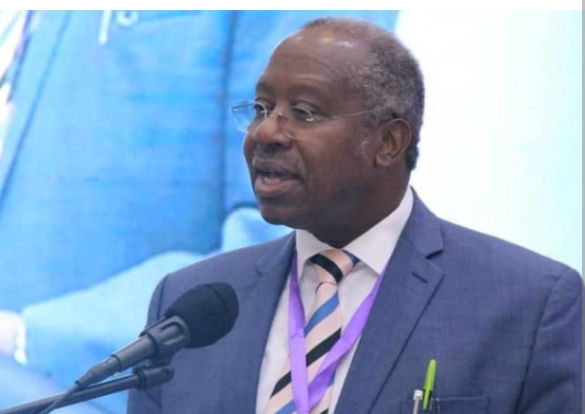Justice Martin Stephen Egonda-Ntende has expressed concern over what he described as a worrying decline in the protection of bail rights within Uganda’s lower courts.
The senior judge, who is scheduled to retire in about six months, made the remarks while addressing participants at the World Philosophy Day Conference at Makerere University.
Justice Egonda-Ntende said he is increasingly disturbed by reports from magistrates’ courts, particularly cases where accused persons are denied or delayed bail on questionable grounds.
He cited scenarios in which suspects are sent to remand simply because prosecutors claim they need more time to “verify national identity cards” presented by sureties—an explanation he dismissed as illogical.
“To remand someone because you are still investigating a national ID is very funny reasoning,” he said, adding that such decisions contradict well-established legal principles.
Reflecting on his early years as a lawyer, Justice Egonda-Ntende said magistrates then made deliberate efforts to inform accused persons of their constitutional right to bail.
“Back then, the magistrate would take the trouble to explain to an accused person that he had a right to apply for bail,” he recalled.
He emphasized that in a democratic society, the presumption should always favour releasing a person charged with a bailable offence—unless the state can show compelling reasons to do otherwise.
“But now there is hostility to some of these rights,” he warned.
Justice Egonda-Ntende also revisited an era when, under former Chief Justice Wako Wambuzi, a problematic trend emerged in which some magistrates routinely postponed Friday bail applications to the following Monday. This automatically kept suspects in custody over the weekend.
He said the then Chief Justice eventually issued a formal directive condemning the practice and instructing judicial officers to handle bail applications promptly—either granting or denying them and providing clear reasons.
Justice Egonda-Ntende revealed plans to trace that directive and request the Uganda Legal Information Institute (ULII) to publish it. He believes making such historical guidance public will help citizens understand how similar issues were addressed previously and reinforce the judiciary’s obligation to safeguard constitutional rights.


